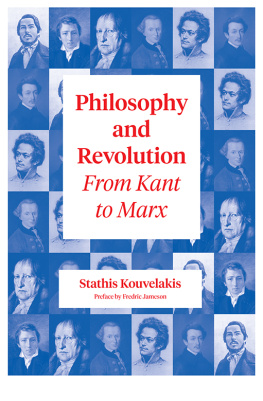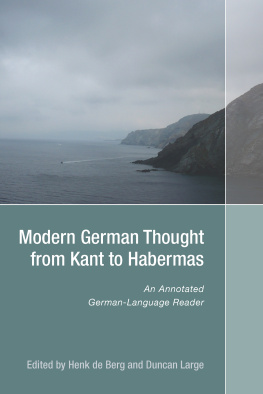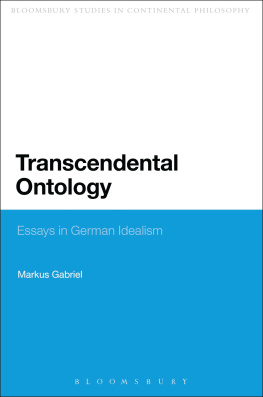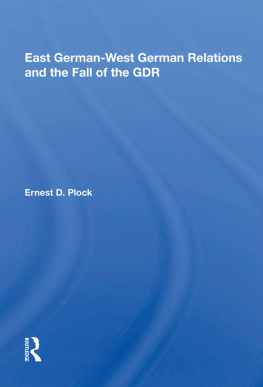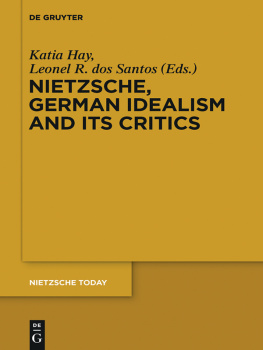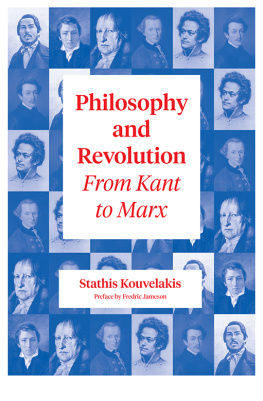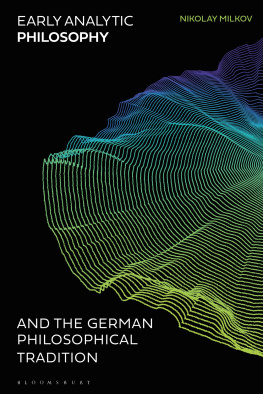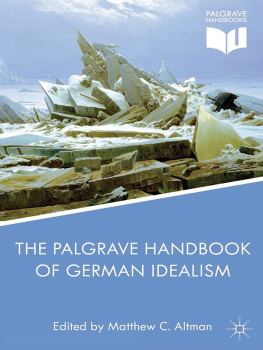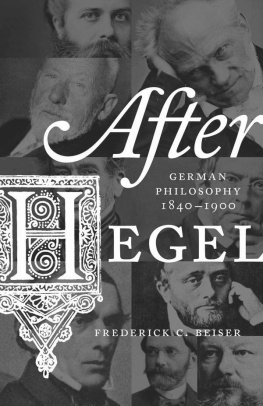Contents

Philosophy and Revolution
Philosophy and Revolution
From Kant to Marx

STATHIS KOUVELAKIS
Translated by G.M. Goshgarian
Preface by Fredric Jameson
New Afterword by Stathis Kouvelakis
and Sebastian Budgen

In memory of Nicos Poulantzas
This book is supported by the French Ministry of Foreign Affairs
as part of the Burgess Programme, headed for the French Embassy
in London by the Institut Franais du Royaume-Uni

This edition published by Verso 2018
First published by Verso 2003
Stathis Kouvelakis 2003, 2018
Translation G.M. Goshgarian 2003, 2018
Preface Fredric Jameson 2003, 2018
Afterword Stathis Kouvelakis and Sebastian Budgen 2018
All rights reserved
The moral rights of the authors have been asserted
1 3 5 7 9 10 8 6 4 2
Verso
UK: 6 Meard Street, London W1F 0EG
US: 20 Jay Street, Suite 1010, Brooklyn, NY 11201
versobooks.com
Verso is the imprint of New Left Books
ISBN-13: 978-1-78663-578-5
ISBN-13: 978-1-78663-579-2 (UK EBK)
ISBN-13: 978-1-78663-580-8 (US EBK)
British Library Cataloguing in Publication Data
A catalogue record for this book is available from the British Library
Library of Congress Cataloging-in-Publication Data
A catalog record for this book is available from the Library of Congress
Typeset in Baskerville
Printed and bound by CPI Group (UK) Ltd, Croydon, CR0 4YY
Contents
To my mother, Mitzi Koudounis, who was always at my side at the most important moments, notably during the composition of this work, but who left us unexpectedly.
To Georges Labica and Jean-Marie Vincent, without whom this research would have proved impossible.
To Fredric Jameson, Jacques Bidet and Kostas Vergopoulos, whose support never faltered.
To tienne Balibar, Sebastian Budgen, Gregory Elliott, Jacques Guilhaumou, Annie Mordrel, Emmanuel Renault and Andr Tosel, who, in different ways, examined all or a part of this bulky manuscript.
To my former colleagues at the Department of European Studies of the University of Wolverhampton and particularly to Mike Haynes.
To Marie-Jos Gransard, for her indispensable generosity.
To G.M. Goshgarian, whose lessons in rigour and method I am not going to forget.
To the whole Verso team, for their goodwill and their hard work.
The revolution is one and indivisible.
Heinrich Heine
If it is a truism that every generation rewrites Marx in a new way, what has to be added is that every age also brings its own historically specific mode of rewriting to the process. This one, for example, is characterized by a paradoxical combination of a distrust of teleology, and even historical narrative as such, with an extraordinary renaissance of biographical writing. The apparent paradox can be reduced if we begin to grasp the way in which nowadays narratives of emergence, influence, causality, and formation in reality have begun to function as devices for highlighting and foregrounding the component parts of structure as such: a narrative trajectory serving as a visible pathway on a multidimensional construct formed out of tubes of distinctly coloured beams of light.
This is the sense in which Stathis Kouvelakiss remarkable new history of the formation of Marxs thought perhaps the first truly original new version of that formation since Auguste Cornus monumental postwar history is not to be taken only as an account of the contingencies and encounters, the accidents of intellectual discovery and the unpredictable exposure to the winds of the Zeitgeist; but also as a new theory of what is structurally most central and distinctive in Marxs achievement: namely, the unique political nature and powers of the proletariat.
As for Marxs formation and development, the classical narrative was already constructed by Engels: the confluence of German philosophy, British political economy, and French revolutionary politics. It was an enormously satisfying dialectical synthesis, which positioned Marxism (about which it is today generally agreed that it was Engels who invented it) centrally as the inheritor of European thought as such. Today, perhaps, in the light of globalization and the new thought modes it is in the process of teaching us, and also in the hindsight of Moses Hesss notion (rediscovered here) of a triarchy of relations between Paris, Germany and Manchester (rather than London), we may grasp this as something like a spatial or geographical force-field, the after-image in thought of an international and cross-cultural pattern of the type most universally revealed today in the current world system. This is, so to speak, the geopolitical substratum of philosophy; and Kouvelakiss book reminds us insistently of the perceptual and intellectual advantages of figures we might once have considered as exiles, but who come before us today as the bearers and vehicles of transnationality.
The first dramatic crystallization of this process is to be identified in the French Revolution itself, which resonated beyond all the old national boundaries with the shattering and terrifying force of an event and, indeed, an event of wholly new historical structure, which now redefines our conception of vnementialit or eventfulness, even of history itself. Revolution now becomes a new kind of collective event, and the historical chronicle is suddenly and dramatically reorientated around it in a radically new kind of historicity, which in the process changes all the conditions of philosophizing as such.
Kouvelakis demonstrates this process centrally at work in the renewal of philosophy by Kant and Hegel. Characteristically, the Anglo-American perspective on these thinkers has never been passionately committed to any curiosity about their political positions, beyond some vague sense that Kant was an Enlightenment figure and Hegel a seemingly more conservative or even reactionary one. We therefore have everything to learn from the newer French and Italian intellectual scholarship, and Kouvelakiss discussion may well serve, not only as an introduction to this new material, but as a way of producing new kinds of philosophical problems. Thus Andr Tosel has demonstrated the centrality of the French Revolution for Kant, and Domenico Losurdo has definitively dispelled the myth of a reactionary Hegel: these are positions more in consonance with Lukcss views than with those of Althusser, which are systematically and punctually questioned throughout the present work. Yet all this scarcely betokens a return to Lukcs either (unless we posit a considerable rewriting of his work as well), and in fact suggests the possibility of an opening up of philosophy beyond its current disciplinary boundaries and, very specifically, a new sense of the necessary and constitutive political dimension of thought as such.
Of thought; but also of other forms of culture. Indeed, nothing is more dramatic, in the present book, than the reconsideration of the role and status of Heinrich Heine in the history of post-Hegelian German philosophy and the emergence of Marxism. This poet a kind of German Baudelaire, the first ironic German and the inventor of a unique combination of satire and lyric, who was also the purveyor of an advanced French culture to a provincial Germany, and the author of the first great popular account of the development and potentialities of post-Hegelian German thought; the target, as well, of the first, shall we say experimental, cultural anti-Semitism remains to this day a profoundly ambivalent figure: his historical assessment still in doubt, his literary status still contested as though he had written only yesterday (Adornos essay Heine as Wound gives a vivid and exemplary picture of these contradictions and uncertainties).

